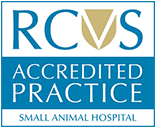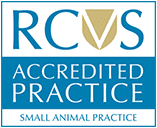Here at My Pets Vets we strongly advise you consider insuring your pet against accident and illness. If you have a dog, we advise you to consider third party pet insurance as well.
Pet insurance can provide you with a financial safety blanket if the worst should happen to your beloved pet, although we often find the biggest benefit owners report is that it takes away their concerns about finances if their pet gets sick – so they can just concentrate on getting them better.
We understand just how confusing pet insurance can be though, so we will try to answer some commonly asked questions here.
Pet insurance is a contract between you and the insurance company, in the same way your car insurance or home insurance is.
Due to the Due to the law governing the selling of financial products, My Pets Vets cannot recommend specific insurance companies.
Different policy types
There are many different types of pet insurance available currently, some which cover for accident only, some illness only, some will only provide cover for a year after the diagnosis of a condition (whether you have claimed for it or not), and some which will only pay for some conditions, or up to a certain sum of money.
We recommend lifelong insurance for your pet – which covers your pet for an ongoing illness or injury throughout its life. Some insurance policies only cover your pet for a year before excluding that illness or injury for the rest of its life (which means they will no longer pay for any treatment for that condition). Some policies only cover your pet for certain conditions, and for a total sum of money throughout its life.
It is important to realise that pet insurance policies are not all similar, so you really need to read the small print carefully, and ask questions before taking out a policy.
Pre-existing conditions
If your pet has been seen for a problem before you take the insurance policy out, then this will be classed as a pre-existing condition, and will not be covered by your insurance policy. This is also true if you choose to change insurance company after your pet has received treatment for a condition – even if you have not made a claim on your pet insurance.
Excesses
The majority of insurance policies ask you to pay an excess – the value of this excess varies from insurance company to insurance company, and sometimes policy to policy, so you really need to read the small print. Most policies ask you to pay one excess, per condition you claim for, per year.
This means that if you have an insurance excess of £70, and your pet is unlucky enough to need treatment for a broken leg, a skin condition, and an eye injury in one year, which are all unrelated then you will have to pay 3 x £70 in excesses before your insurance company will start to make payments.
Some insurance companies will only ask you to pay one excess per condition for the life of the condition.
Some insurance companies ask you to pay an excess, and also a co-payment excess which is usually a percentage of the total bill. The insurance company will then pay the difference, depending on their terms and conditions.
Preventative health care
Insurance companies do not pay for routine preventative health care for your pets such as flea prevention and worming treatments, or neutering procedures unless they are done for medical reasons. The majority also require your pet to be fully vaccinated and up to date with its vaccinations, and to have had regular, documented, health checks with your vet.
3rd party pet insurance
Most owners worry about the cost of vet’s bills and look to pet insurance for this reason – but it is really important to remember 3rd party insurance too as this provides financial insurance should your dog cause damage to a vehicle, or injure a person or property, (but doesn’t protect you from the law).
We strongly recommend that even if you choose not to insurance your pet to cover vet’s bills, you get 3rd party pet insurance. This can be obtained by joining the Dogs Trust – that way you can also help benefit a brilliant charity that do so much to help dogs in trouble in the UK.
How My Pets Vets work with Pet Insurance companies
If your pet is insured and requires treatment above your policy excess then we will ask you to bring in your pet insurance documents along with a completed and signed claims form at the time of treatment.
If you are able to provide these documents, with a stamped addressed envelope to your insurance company, and pay your policy excess then we will fill out and submit an insurance claim form on your behalf if so long as you accept our terms and conditions, which will be made available to you by our reception team. We reserve the right to charge an administration charge for the completion of all insurance claims forms.
It is important to remember that it is your responsibility to settle your account if your insurance company does not settle the account within 60 days, for any reason.
We hope this has helped answer your questions but if you have any others regarding pet insurance please feel free to ask any member of our team, who will do their best to answer them for you. Our phone numbers are below, or you can pop into our surgery for a chat.





